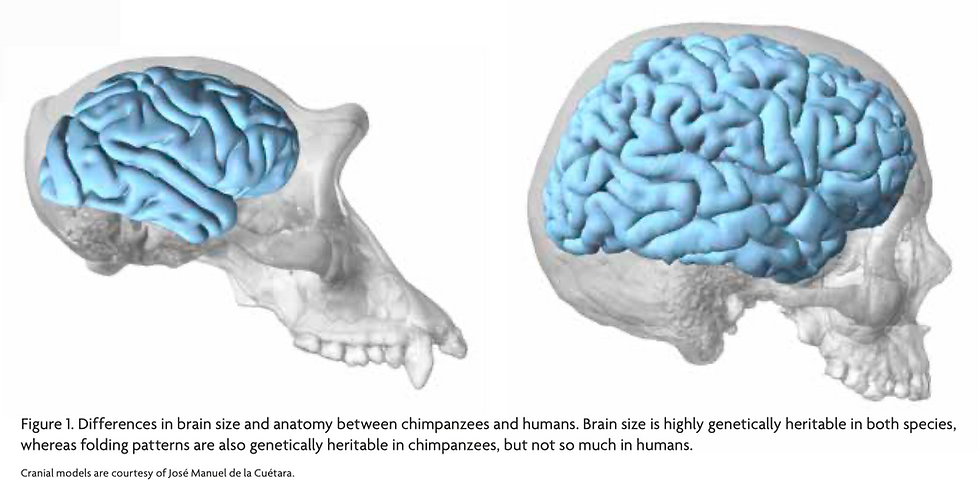Language: Innate or Learned
- Wu, Bozhi

- Nov 21, 2019
- 3 min read
Updated: Mar 19, 2021

Reading:
Gleitman, L. R., & Newport, E. L. (1995). The invention of language by children: Environmental and biological influences on the acquisition of language
Safffran, J. R. (2005). Statistical language learning: Mechanisms and constraints
Pinker, S. (1991). Rules of language
Language is probably one the most fascinating while mysterious ability that humans possess. It enables us to communicate without the limit of time or space and contributes to the record of human knowledge, catalyzing cultural evolution in general. These are descriptions from a macro perspective. On the other hand, from the individual level, almost everyone in the world can acquire at least one language in her life. And interestingly, it is so spontaneous and natural for an infant to learn a language even without any specialized teaching by the parents. Therefore, it seems that there must be some innate capabilities of language built-in inside our genetic toolkit, which may also explain the widely observed similarity in language structures across all human cultures. But another fact is that, without the necessary linguistic inputs, human babies can never learn a language (that is, language is almost certainly learned). So, whether language is innate or learned has always been a huge debate. Nevertheless, from the modern scientific approach, we usually find this dichotomy to be unnecessary or even misleading. In other words, the classical natural-nurture debate is an ill-formed question.
The central problem resides in people’s inaccurate understanding of genetic information, the evolution of psychological modules, and the most crucial concept of “development.” In evolutionary psychology, we would like to frame this problem into a problem of “prepared learning,” which means that although the information itself requires input (need linguistic input to acquire language), the potential or propensity to focus on and take in certain domains of information or inputs is evolved (probably some kind of statistical information processing algorithm is operating in the brain to deal with huge amount of linguistic input data).
From my point of view, it is probably misleading to think about any mental capacity in a dichotomic fashion as there is almost always the component of “development” involved, and both the predisposition and the environmental information are necessary for the complete formation of any certain capacity. Almost all of our mental capacities are modular or domain-specific, specially “designed” to deal with certain domains of input, and language acquisition is probably one of the best demonstrations of this concept.

Before the age of 6 or 7, children are still within the critical period of language acquisition and are capable of learning languages at a fascinating speed. However, shortly after that age, learning a language to its full extent becomes more and more difficult. Combing an evolutionary viewpoint and brain development, it is reasonable that the degree of complexity represented in children’s utterances is correlated with the maturity of their brains. But why is there such a critical window existing? Why, as the brain grows more mature, the ability to acquire language diminishes? There is probably no current scientific explanation for this fact, but I hypothesize that it is both due to the high cost of language acquisition from an evolutionary and ontogeny viewpoint and the stages of brain development corresponding to how linguistic information is processed and stored within the neural networks.
All in all, language must be viewed from a developmental perspective. Future research should probably investigate the temporal correspondence between brain development and critical period. Furthermore, other evolutionary constraints on language acquisition should be hypothesized and tested.




Comments